Tour Programme
Visiting the area of Kraków and Malopolska is a truly worthwhile experience, both to learn about Polish history and tradition. There are numerous must-see attractions where beauty and diversity of the landscape intermingle with top architectural historical sites. Each year millions of domestic and foreign tourists come here to admire Kraków and its surrounding attractions, including the Wieliczka salt mine, the architectural and landscape park complex in Kalwaria Zebrzydowska, Auschwitz-Birkenau museum, wooden churches and castles.
Our host is pleased to offer a range of complimentary tours, offering you the chance to discover the variety and beauty of the city and its surroundings.
Saturday 23 April
Kraków Walking tour
Morning and afternoon tour
Duration: 4 hours
Morning tour: 9 am – 1 pm
Afternoon tour: 2pm – 6 pm
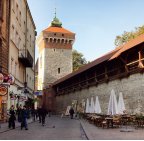
The walking tour you will enable you to see all the attractions of the city. You will experience Kraków’s unique atmosphere, learn about its 1000 year history and see architectural wonders from different centuries. Our professional guide will show you all of the highlights of the city such as; Main Market Square, Royal Route, Church of Saints Peter and Paul, Wawel Royal Castle and Cathedral, Cloth Hall and Collegium Maius. Next stop is Kazimierz, old Jewish Quarter, full of synagogues, pre – war buildings and little cafes. You will see the Renaissance Remuh Synagogue and the historical Jewish Remuh Cemetery - the oldest and some of the most important places for the Jewish life and heritage in Poland. During the tour you will be able to taste Polish traditional starters and drinks.
Kraków tour (electric car)
Morning & afternoon tour
Duration: 1 hour
Morning tour: 10 am – 11 am
Afternoon tour: 5 pm – 6 pm
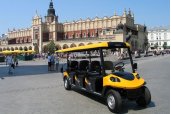
Visit the most attractive locations of the city in a comfortable, electricity powered vehicle. You will be offered the opportunity to enjoy audio guide commentary during the trip. The route of this trip gets around the most important monuments and places such as: Wawel Hill and Royal Castle, the gothic St Mary Basilica, the historical trade pavilions of the Cloth Hall, the Royal Road and fragments of fortifications: Barbican, Florianska Tower and the former separate Jewish district of Kazimierz.
Kraków Segway tour
Duration: 2 hours
Afternoon tour: 2pm – 4pm
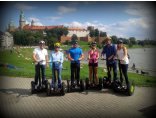
Never been on a Segway? - this is a perfect opportunity for you. Our mini tour is a perfect orientation for first timers and will offer you the chance to see all of the sights of the city.
During our tour we will take you to a couple of Kraków's highlights and major attractions of the Old town such as; Main Market Square, Cloth Hall, St. Mary's Church, Royal Route, University Quarter with Collegium Maius Building (where Copernicus went to School), Remnants of Medieval Fortifications, Dragon of Wawel Castle, Banks of the Vistula river. The audio guide available in English.
Fully booked
The Salt Mine in Wieliczka
Duration: 4 hours
Morning tour: 9 am – 1 pm
Afternoon tour: 2 pm – 6pm
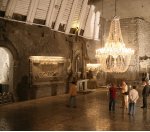
Discover one of Poland’s most famed attractions – Wieliczka Salt Mine. Wieliczka was inscribed on the UNESCO World Heritage List in 1978. From the 13th century the mine has been systematically expanded and now the network of 300-kilometre-long galleries (and 3,000 chambers) extends to a depth of up to 327 m. The Underground Tourist Route is nearly 3 km long and roughly 64-135 m deep. It leads through over 22 of the most beautiful chambers created in the 13th-century mine, among salt sculptures and underground lakes. You will spend around 2 -2,5 hours in the Salt Mine. Lunch box for the tour will be provided.
Communism and Nowa Huta tour
Duration: 4 hours
Afternoon tour: 2 pm – 6 pm
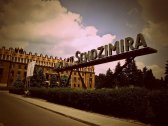
We'll drive you to the outskirts of Kraków to visit the model Communist city & steelworks - Nowa Huta. You'll experience the wonders of this one-of-a-kind place, including its monumental Central Square, wide avenues, residential units, steelworks' headquarters, a Soviet tank and an impressive Solidarity church. Not only will you discover how the average Pole lived, worked and played under Communism, but stories and anecdotes from your laid-back local guide will bring the "good old days" back to life! Tour includes lunch in an old-school "Milk Bar" canteen and a guided visit to our private museum. Explore everyday life in Poland in the 1970s in our exclusive and unchanged Communist apartment, where you have the rare opportunity to eat pickled cucumbers and have a shot of vodka. You can also try your hand at driving the trusty Trabant.
Bicycle country tour
Duration: 3 hours
Afternoon tour: 2 pm – 5 pm
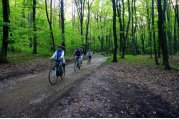
The country tour takes you along the Vistula river to Tyniec, a small town 12km west of Kraków, famous for its 11th century Benedictine Abbey. Founded in 1044, the abbey played a crucial military role in Poland's Christian restoration and the nation's rebuilding.The tour begins along the Vistula river on a smooth bike path and leads you through southern Poland's picturesque countryside. You will pass through age-old woods, see crumbling forts and cycle past some of the lakes that surround Kraków. Upon arrival at Tyniec, you'll have a chance to explore the ancient grounds, take photographs of breathtaking scenery and visit the gift shop, which is full of monk-made products prepared by the monks.The essence of the tour is a relaxed, scenic country cycle rather than the stop-start nature of the city tour.You will also enjoy Polish cuising lunch break in the abbey.
Auschwitz-Birkenau Nazi German concentration camp
Duration: 7 hours
Morning tour: 8:30 am – 3:30 pm
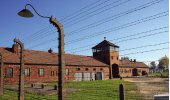
The Auschwitz concentration camp was established by the Nazi Germans on the territory of the occupied Oświęcim. Since 1942, Auschwitz-Birkenau had also become one of the centres of the Holocaust – mass extermination of European Jews. The Nazi Germans exterminated at least 1.1 million people, mostly Jews, but also Poles, Roma, Russian prisoners of war and prisoners of other nationalities in Auschwitz. As of 1947, State Museum has operated on the grounds of the former Nazi German concentration and extermination camp. The Memorial Site comprises the area of two preserved parts of the camp: Auschwitz I and Auschwitz II- -Birkenau. In 1979, the area of the former Auschwitz-Birkenau concentration camp was inscribed on the UNESCO World Heritage List. The lunch box for the tour will be provided.
Wednesday 27 April
Vouchers for the tours starting 27 April will be sent to delegates on 25 April
Zakopane
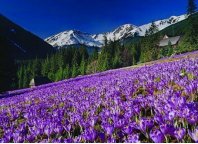
Duration: 9 hours
Morning tour: 8 am – 5 pm
If you wish to experience the atmosphere and culture of Polish highlands we would like to invite you for a tour to ZAKOPANE – the highland capital of Poland. Zakopane is a centre of active leisure and recreation, located in the shadow of the Tatras, at the foot of the majestic, cross-crowned Giewont Mount, welcomes all visitors both in the summer as well as in the winter. In the 19th century Zakopane was a sleepy village inhabited by the Polish highlanders who - living for years in isolation - created their own unique culture. The special atmosphere and natural beauty of the place was discovered by one of the Polish professors. In a short time, artists and crème de la crème of the society declared Zakopane their favourite place in Poland, where they rested, created works of art and had affairs... Currently, the town is visited by thousands of tourists who, desiring to get to know its tradition.
You will begin your exploration of the area by taking the funicular railway to the top of Mount Gubałówka for views over the granite and limestone peaks of the Tatra Mountains. Having returned to the oldest part of Zakopane, we will visit the charming wooden old parish church and the most unique cemetery in Poland. To complete your experience, you have a chance to visit the enormous regional market and enjoy lunch in a regional restaurant serving local specialties.
Auschwitz-Birkenau Nazi German concentration camp
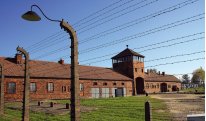
Duration: 7 hours
Morning tour: 8:30 am – 3:30 pm
The Auschwitz concentration camp was established by the Nazi Germans on the territory of the occupied Oświęcim. Since 1942, Auschwitz-Birkenau had also become one of the centres of the Holocaust – mass extermination of European Jews. The Nazi Germans exterminated at least 1.1 million people, mostly Jews, but also Poles, Roma, Russian prisoners of war and prisoners of other nationalities in Auschwitz. As of 1947, State Museum has operated on the grounds of the former Nazi German concentration and extermination camp. The Memorial Site comprises the area of two preserved parts of the camp: Auschwitz I and Auschwitz II- -Birkenau. In 1979, the area of the former Auschwitz-Birkenau concentration camp was inscribed on the UNESCO World Heritage List. The lunch box for the tour will be provided.


